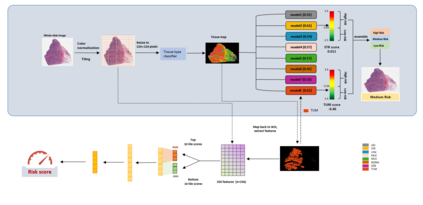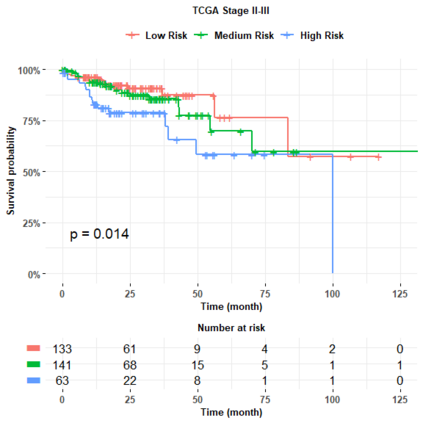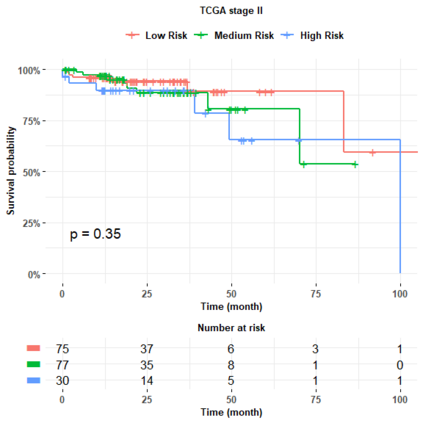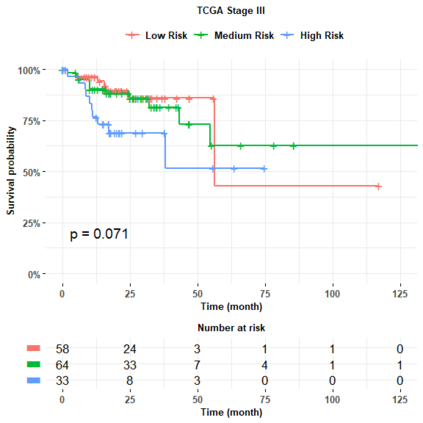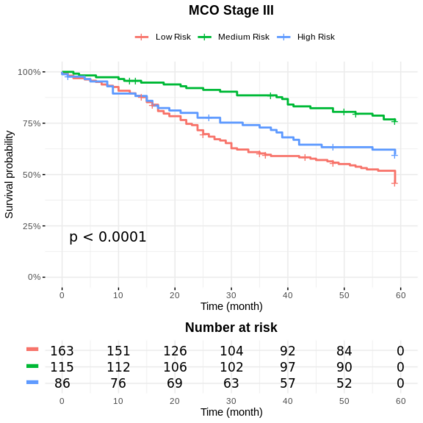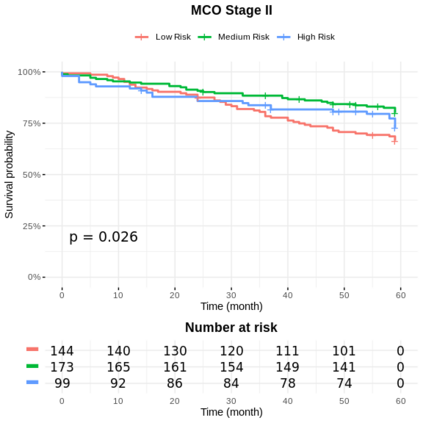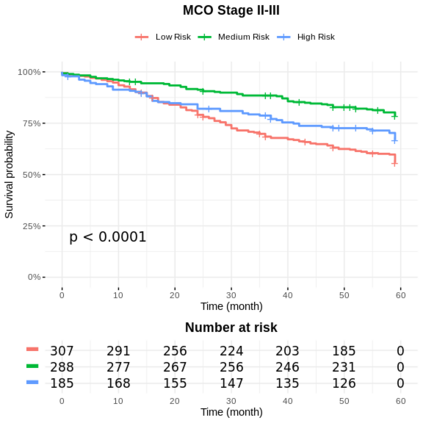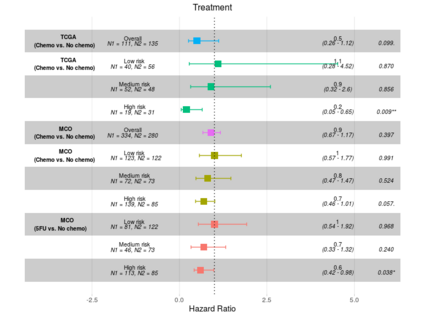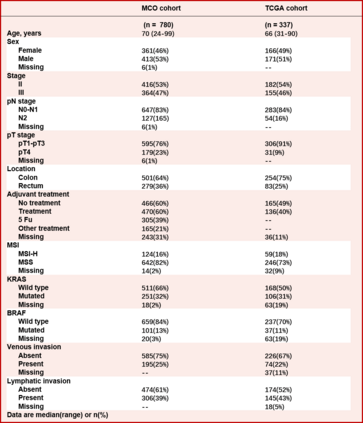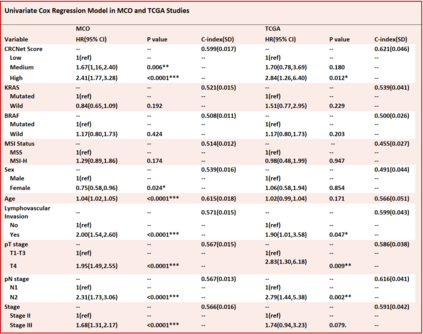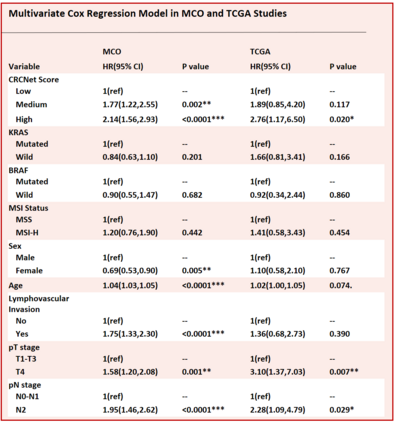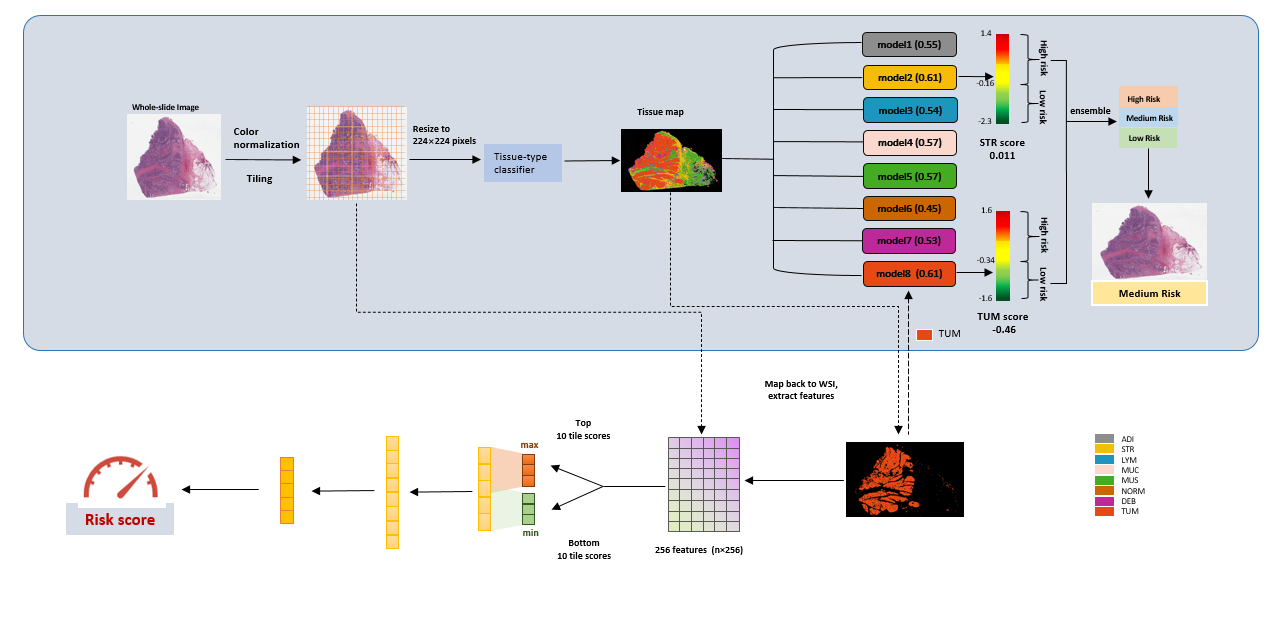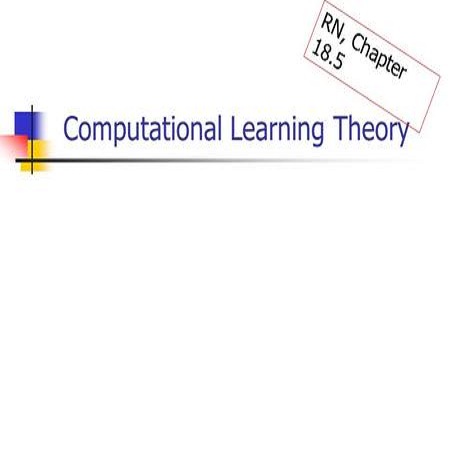Most early-stage colorectal cancer (CRC) patients can be cured by surgery alone, and only certain high-risk early-stage CRC patients benefit from adjuvant chemotherapies. However, very few validated biomarkers are available to accurately predict survival benefit from postoperative chemotherapy. We developed a novel deep-learning algorithm (CRCNet) using whole-slide images from Molecular and Cellular Oncology (MCO) to predict survival benefit of adjuvant chemotherapy in stage II/III CRC. We validated CRCNet both internally through cross-validation and externally using an independent cohort from The Cancer Genome Atlas (TCGA). We showed that CRCNet can accurately predict not only survival prognosis but also the treatment effect of adjuvant chemotherapy. The CRCNet identified high-risk subgroup benefits from adjuvant chemotherapy most and significant longer survival is observed among chemo-treated patients. Conversely, minimal chemotherapy benefit is observed in the CRCNet low- and medium-risk subgroups. Therefore, CRCNet can potentially be of great use in guiding treatments for Stage II/III CRC.
翻译:大多数早期直肠癌(CRC)患者可以单靠外科手术治愈,只有某些高风险的CRC早期患者才能从肾上腺炎中得益。然而,很少有经过验证的生物标志可用于准确预测手术后化疗的存活率。我们开发了一种新的深层次学习算法(CRCNet ), 使用分子和细胞肿瘤学的全流图像预测二/三期化学疗法的存活率。我们通过交叉验证和外部使用癌症基因组图集(TCGA)的一个独立组群对CRCNet进行了验证。我们表明,CRCNet不仅能够准确预测存活率预测,而且能够准确预测抗生素化疗治疗的治疗效果。我们发现,在经过化学治疗的病人中,Adjuvant化疗最有效,而且持续时间也大大延长了。相反,在CRCNet的中低风险分组中、低风险分组中都观测到极少的化疗益。因此,CRCNet在二/III阶段的指导治疗中可能大有用。

